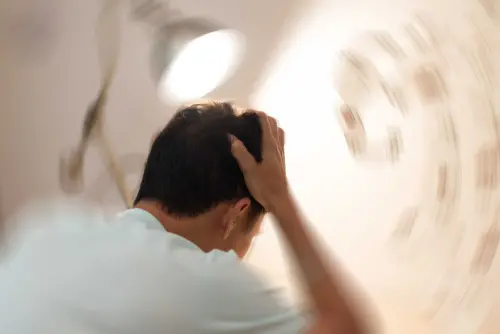- Home
- Medical news & Guidelines
- Anesthesiology
- Cardiology and CTVS
- Critical Care
- Dentistry
- Dermatology
- Diabetes and Endocrinology
- ENT
- Gastroenterology
- Medicine
- Nephrology
- Neurology
- Obstretics-Gynaecology
- Oncology
- Ophthalmology
- Orthopaedics
- Pediatrics-Neonatology
- Psychiatry
- Pulmonology
- Radiology
- Surgery
- Urology
- Laboratory Medicine
- Diet
- Nursing
- Paramedical
- Physiotherapy
- Health news
- Fact Check
- Bone Health Fact Check
- Brain Health Fact Check
- Cancer Related Fact Check
- Child Care Fact Check
- Dental and oral health fact check
- Diabetes and metabolic health fact check
- Diet and Nutrition Fact Check
- Eye and ENT Care Fact Check
- Fitness fact check
- Gut health fact check
- Heart health fact check
- Kidney health fact check
- Medical education fact check
- Men's health fact check
- Respiratory fact check
- Skin and hair care fact check
- Vaccine and Immunization fact check
- Women's health fact check
- AYUSH
- State News
- Andaman and Nicobar Islands
- Andhra Pradesh
- Arunachal Pradesh
- Assam
- Bihar
- Chandigarh
- Chattisgarh
- Dadra and Nagar Haveli
- Daman and Diu
- Delhi
- Goa
- Gujarat
- Haryana
- Himachal Pradesh
- Jammu & Kashmir
- Jharkhand
- Karnataka
- Kerala
- Ladakh
- Lakshadweep
- Madhya Pradesh
- Maharashtra
- Manipur
- Meghalaya
- Mizoram
- Nagaland
- Odisha
- Puducherry
- Punjab
- Rajasthan
- Sikkim
- Tamil Nadu
- Telangana
- Tripura
- Uttar Pradesh
- Uttrakhand
- West Bengal
- Medical Education
- Industry
Remote video oculography superior to in person ED diagnosis of Vertigo

A recent trial found that remote video-oculography (VOG) evaluation by oto-neurologists significantly improved diagnostic accuracy, especially for common inner ear disorders in emergency department vertigo presentations. The trial results will be presented at the American Neurological Association 2022 Annual Meeting, October 22-25, 2022 in Chicago, and published in the Annals of Neurology.
Many clinicians in the emergency department (ED) find it difficult to diagnose vertigo. Specialty clinics use video oculography (VOG) frequently, but emergency departments do not. Although accurate remote assessment of acute vertigo using VOG is unknown, VOG recordings may facilitate accurate ED diagnosis of vestibular disorders like benign paroxysmal positional vertigo (BPPV) and vestibular neuritis. Hence researchers conducted a trial called the AVERT trial to compare the accuracy of ED diagnoses to remote, VOG-based expert diagnoses in a multicenter diagnostic strategy.
Six tertiary-care emergency departments participated in the AVERT trial from 2/6/2018 to 3/9/2020. Adult ED patients with acute vertigo, ataxia, and/or evidence of nystagmus were prospectively recruited. A structured history and examination, including VOG (ICS Impulse, Schaumberg, IL, USA) and standardized neurologic rating scales, were given to the eligible patients. Examining for spontaneous, gaze, and positional nystagmus were all part of VOG along with horizontal vestibulo-ocular-reflex head-impulse tests, and skew deviation alternate cover testing.
Real-world ED team primary diagnoses were compared to research diagnoses by a single, experienced oto-neurologist using VOG recordings and a brief clinical summary from the ED charted record was taken, thereby simulating remote, VOG-based, expert teleconsultation. From a list of 12 confirmed diagnoses, the expert chose their diagnosis. After that, diagnoses were sorted into predetermined schemas of varying granularity (three, six, and twelve categories). A multidisciplinary panel made gold-standard diagnoses using ED charts, structured history and exams (including VOG), a one-week oto-neurology evaluation, a second VOG and MRI, and a one-month phone/record review.
Results:
- 130 patients were enrolled with a mean age of 59.2±15 years; 21 with unknown final diagnoses were excluded.
- Oto-neurologist using VOG showed higher diagnostic accuracy than the ED primary diagnosis (3-category schema: 72.5% vs 22.9%, p<0.001; 6-category schema: 63.3% vs 18.3%, p<0.001; 12-category schema: 61.5% vs 17.4%, p<0.001).
- Even greater differences were identified when comparing diagnostic sensitivity for identifying BPPV (69.8% vs. 9.3%, (p<0.001) and vestibular neuritis (83.3% vs. 20.8%, p=0.003).
- As the sample size was small, stroke sensitivity was not significantly different (n=14, 57.1% vs 42.9%; p=0.5).
Thus, despite limitations like a single expert who was a member of the final multi-disciplinary panel determining the VOG-based diagnoses, remote VOG evaluation by oto-neurologists in ED vertigo presentations substantially improved diagnostic accuracy, particularly for common inner ear disorders.
For further reading, click here: Remote Expert Diagnosis by Video-Oculography is More Accurate Than In-Person ED Diagnosis in Acute Vertigo and Dizziness—Preliminary Results of the AVERT Trial.
BDS, MDS
Dr.Niharika Harsha B (BDS,MDS) completed her BDS from Govt Dental College, Hyderabad and MDS from Dr.NTR University of health sciences(Now Kaloji Rao University). She has 4 years of private dental practice and worked for 2 years as Consultant Oral Radiologist at a Dental Imaging Centre in Hyderabad. She worked as Research Assistant and scientific writer in the development of Oral Anti cancer screening device with her seniors. She has a deep intriguing wish in writing highly engaging, captivating and informative medical content for a wider audience. She can be contacted at editorial@medicaldialogues.in.
Dr Kamal Kant Kohli-MBBS, DTCD- a chest specialist with more than 30 years of practice and a flair for writing clinical articles, Dr Kamal Kant Kohli joined Medical Dialogues as a Chief Editor of Medical News. Besides writing articles, as an editor, he proofreads and verifies all the medical content published on Medical Dialogues including those coming from journals, studies,medical conferences,guidelines etc. Email: drkohli@medicaldialogues.in. Contact no. 011-43720751




